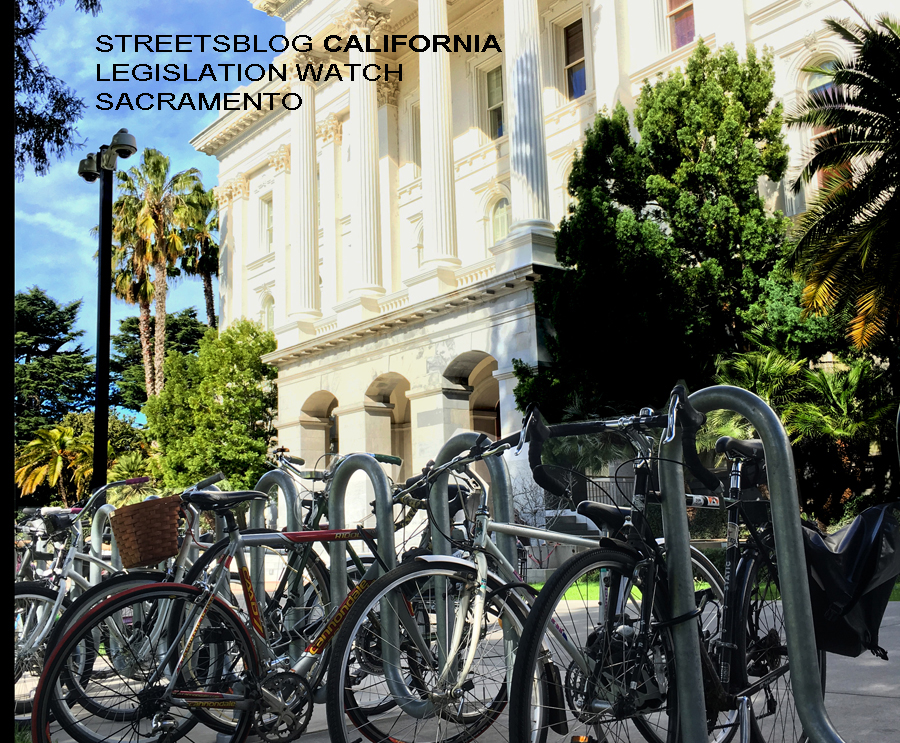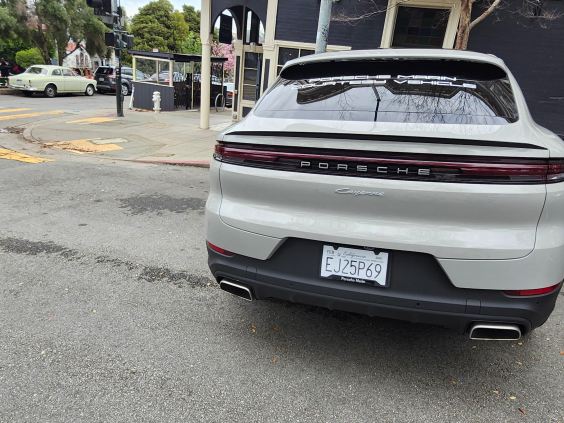Assemblymember Cristina Garcia's (D-Bell Gardens) bill that would have prohibited California state agencies from investing time and money into freeway expansions in low-income communities that are hard-hit by pollution and displacement, A.B. 1778, died in the Senate Transportation Committee on Tuesday.
The chair of the committee, Senator Lena Gonzalez (D-Long Beach), was out sick, and it wasn't clear where she stood on the bill. She had been opposed to it, but she and the bill's author had also been working towards agreements on amendments. Assemblymember Garcia was clearly unhappy to be in the position of presenting a bill without having ensured the support of the committee chair, but the deadline to get all bills out of policy committees was this week, so it was do or die.
The bill died on an 8-2 vote.
"This is the first time in ten years I've shown up [to present a bill] without being able to get to [an agreement] with the chair," Garcia told the committee. She and the chair had been working through amendments suggested by the committee, and had agreed that the bill would be limited to L.A. County, and only to communities that showed up as the most impacted by pollution as defined by CalEnviroScreen, the state tool for assessing community impacts.
But their negotiations were cut short when Gonzalez became sick.
Lots of arguments have been made against the bill already, most of them coming from groups that have a stake in continuing the status quo of unfettered freeway building. Mark Watts of Transportation California, for example, suggested that other tools, specifically the California Environmental Quality Act, could be used to protect communities. Keith Dunn, representing the Self-Help Counties Coalition, insisted that those counties that have taxed themselves to improve transportation should not be prevented from building those improvements. Both groups conflated the concept of "transportation improvements" with "more and wider freeways."
Sylvio Ferrari, representing the California Building Industry, gave a convoluted, hard-to-follow argument claiming that the bill was a "housing killer" and would contribute to sprawl by making it harder to build infill - because infill projects, he said, have to pay for transportation improvements that could not be built under this bill.
Garcia responded that she was a confused by the "housing killer" name. "I'm trying to build more housing," and to keep people in their current housing, she said. She wrote the bill because of the large number of people who have lost their housing because of freeway construction that has slammed through communities where people are least able to protect themselves.
“If we are truly going to govern with equity lenses we must stop the seizure of family homes in poor brown and Black communities and acknowledge that the freeway system, since the 1950’s, has been used as a tool to further disenfranchise low income communities and communities of color like mine,” she has said in previous statements.
In addition, the increased traffic that comes with expanding freeways not only does not solve the congestion that it claims to solve, it creates a further burden of pollution on communities that already experience bad air quality.
Assemblymember Garcia tried to convince the committee to pass the bill, promising that she would not bring it to the floor of the Senate until it had support from the Chair Gonzalez. Committee members Senators Dave Cortese (D-Santa Clara) and Susan Rubio (D-Los Angeles) both expressed concerns about the uncertainty of those potential amendments, with Rubio asking what effect the bill would have on housing and projects already in the "pipeline."
Rubio overcame her hesitation and voted to keep A.B. 1778 moving, but Cortese joined Senators Josh Becker (D-San Mateo), Bill Dodd (D-Napa) and Robert Hertzberg (D-San Fernando Valley) in not voting on the bill, effectively killing it.






